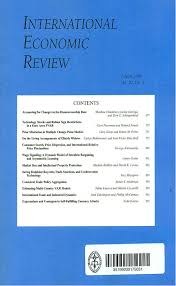

Randolph Sloof
Key publications

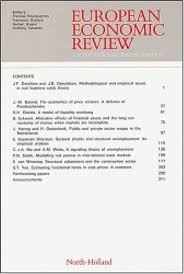
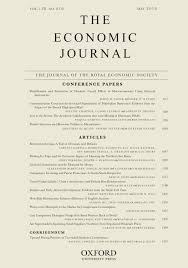
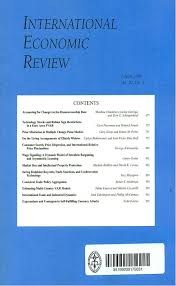
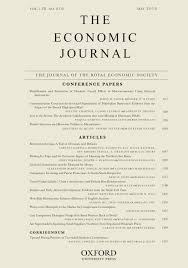
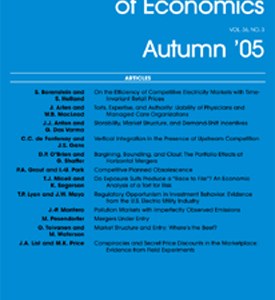
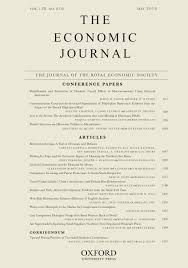
List of publications
Sloof, R., Beetsma, R. and Steinweg, A. (2025). Debt Ceilings with Fiscal Intransparency and Imperfect Electoral Accountability International Economic Review, :.
Vladasel, T., Parker, S., Sloof, R. and \van Praag\, M. (2024). Revenue drift, incentives, and effort allocation in social enterprises Journal of Economics and Management Strategy, 33(3):630--651.
Chochoiek, N., \Rosendahl Huber\, L. and Sloof, R. (2024). Optimism and Overconfidence of Strategic Decision Makers: Comparing Entrepreneurs and Managers With Employees Journal of Economics and Management Strategy, :.
Beetsma, R., Debrun, X. and Sloof, R. (2022). The political economy of fiscal transparency and independent fiscal councils European Economic Review, 145:.
Ioannidis, K., Offerman, T. and Sloof, R. (2022). Lie detection: A strategic analysis of the Verifiability Approach American Law and Economics Review, 24:659--705.
Sun, J., Schram, A. and Sloof, R. (2021). Elections under biased candidate endorsements — an experimental study Games and Economic Behavior, 125:141--158.
Czibor, E., Onderstal, S., Sloof, R. and \van Praag\, C.M. (2020). Does relative grading help male students?: Evidence from a field experiment in the classroom Economics of Education Review, 75:.
Laura Rosendahl Huber (2020). Diverse cognitive skills and team performance: A field experiment based on an entrepreneurship education program Journal of Economic Behavior & Organization.
Koudstaal, M., Sloof, R. and \van Praag\, M. (2019). Entrepreneurs: Intuitive or contemplative decision makers? Small Business Economics, 53:901--920.
Kopányi-Peuker, A., Offerman, T. and Sloof, R. (2018). Team production benefits from a permanent fear of exclusion European Economic Review, 103:125--149.
\de Haan\, T., Offerman, T. and Sloof, R. (2017). Discrimination in the labour market: the curse of competition between workers Economic Journal, 127(603):1433–1466.
Kopányi-Peuker, A., Offerman, T. and Sloof, R. (2017). Fostering cooperation through the enhancement of own vulnerability Games and Economic Behavior, 101:273--290.
Sloof, R. and \von Siemens\, F. (2017). Illusion of control and the pursuit of authority Experimental Economics, 20(3):556--573.
\Rosendahl Huber\, L., Sloof, R. and \Van Praag\, M. (2017). The effect of incentives on sustainable behavior: evidence from a field experiment Labour Economics, 45:92--106.
Sloof, R. and \van Praag\, M. (2015). Testing for Distortions in Performance Measures: An Application to Residual Income Based Measures like Economic Value Added Journal of Economics and Management Strategy, 24(1):74--91.
\de Haan\, T., Offerman, T. and Sloof, R. (2015). Money talks? An experimental investigation of cheap talk and burned money International Economic Review, 56(4):1385--1426.
\Rosendahl Huber\, L., Sloof, R. and \van Praag\, M. (2014). The effect of early entrepreneurship education: evidence from a field experiment European Economic Review, 72:76--97.
\Dominguez Martinez\, S., Sloof, R. and \von Siemens\, F.A. (2014). Monitored by your friends, not your foes: strategic ignorance and the delegation of real authority Games and Economic Behavior, 85:289--305.
Maximiano, S., Sloof, R. and Sonnemans, J. (2013). Gift exchange and the separation of ownership and control Games and Economic Behavior, 77(1):41--60.
Goeree, J., Offerman, T. and Sloof, R. (2013). Demand reduction and preemptive bidding in multi-unit license auctions Experimental Economics, 16(1):52--87.
Cunat, A. and Sloof, R. (2011). Employee types and endogenous organizational design: an experiment Journal of Economic Behavior and Organization, 80(3):553--573.
\de Haan\, T., Offerman, T. and Sloof, R. (2011). Noisy signaling: theory and experiment Games and Economic Behavior, 73(2):402--428.
Sloof, R. and Sonnemans, J. (2011). The interaction between explicit and relational incentives: an experiment Games and Economic Behavior, 73(2):573--594.
Oosterbeek, H., Sloof, R. and Sonnemans, J. (2011). Rent-seeking versus productive activities in a multi-task experiment European Economic Review, 55(5):630--643.
Sloof, R. and \van Praag\, C.M. (2010). The effect of noise in a performance measure on work motivation: A real effort laboratory experiment Labour Economics, 17(5):751--765.
Sloof, R. (2008). Price-setting power vs. private information: An experimental evaluation of their impact on holdup European Economic Review, 52(3):469--486.
Sloof, R. and van Praag, C.M. (2008). Performance measurement, expectancy and agency theory: An experimental study Journal of Economic Behavior and Organization, 67(3-4):794--809.
Maximiano, S., Sloof, R. and Sonnemans, J. (2007). Gift exchange in a multi-worker firm Economic Journal, 117(522):1025--1050.
Sloof, R., Oosterbeek, H. and Sonnemans, J. (2007). Does making specific investments unobservable boost investment incentives? Journal of Economics and Management Strategy, 16(4):911--942.
Oosterbeek, H., Sloof, R. and Sonnemans, J. (2007). Who should invest in specific training? Journal of Population Economics, 20(2):329--357.
Sloof, R., Oosterbeek, H. and Sonnemans, J. (2007). On the importance of default breach remedies Journal of Institutional and Theoretical Economics, 163(1):5--22.
Oosterbeek, H., Sloof, R. and Sonnemans, J. (2007). Promotion rules and skill acquisition: an experimental study Economica, 74:259--297.
Sloof, R., Oosterbeek, H., Riedl, A. and Sonnemans, J. (2006). Breach remedies, reliance and renegotiation International Review of Law and Economics, 26(3):263--296.
Sloof, R. (2005). Opting out: An experimental comparison of bazaars versus high-tech markets Journal of Institutional and Theoretical Economics, 161(4):589--620.
Leuven, E., Oosterbeek, H., Sloof, R. and \van Klaveren\, C. (2005). Worker reciprocity and employer investment in training Economica, 72(285):137--149.
Sloof, R., Sonnemans, J. and Oosterbeek, H. (2004). Specific investments, holdup, and the outside option principle European Economic Review, 48(6):1399--1410.
Oosterbeek, H., Sloof, R. and \van de Kuilen\, G. (2004). Cultural differences in ultimatum game experiments: evidence from a meta-analysis Experimental Economics, 7(2):171--188.
Sloof, R. (2004). Finite horizon bargaining with outside options and threat points Theory and Decision, 57(2):109--142.
Leuven, E., Oosterbeek, H., Sloof, R. and Sonnemans, J. (2003). An experimental comparison of reliance levels under alternative breach remedies RAND Journal of Economics, 34(2):205--222.
Sonnemans, J., Oosterbeek, H. and Sloof, R. (2001). On the relation between asset ownership and specific investments Economic Journal, 111(474):791--820.
Sloof, R. (2000). Interest group lobbying and the delegation of policy authority Economics and Politics, 12(3):247--274.
Sloof, R. and \van Winden\, F.A.A.M. (2000). Show them your teeth first! A game-theoretic analysis of lobbying and presure Public Choice, 104(1-2):81--120.
Sloof, R. (1999). Campaign contributions and the desirability of full disclosure laws Economics and Politics, (11):83--107.
Sloof, R. (1997). Lobbying when the Decisionmaker can acquire independent information. Public Choice, 91(2):199--207.
Sloof, R. (1997). Competitive Lobbying for a Legislators Vote. Social Choice and Welfare, 14(3):449--464.
Potters, J., Sloof, R. and \van Winden\, F.A.A.M. (1997). Campaign expenditures, contributions and direct endorsements: The strategic use of information and money to influence voter behaviour. European Journal of Political Economy, 13:1--31.
Potters, J. and Sloof, R. (1996). Interest groups: a survey of empirical models that try to assess their influence European Journal of Political Economy, 12:403--442.